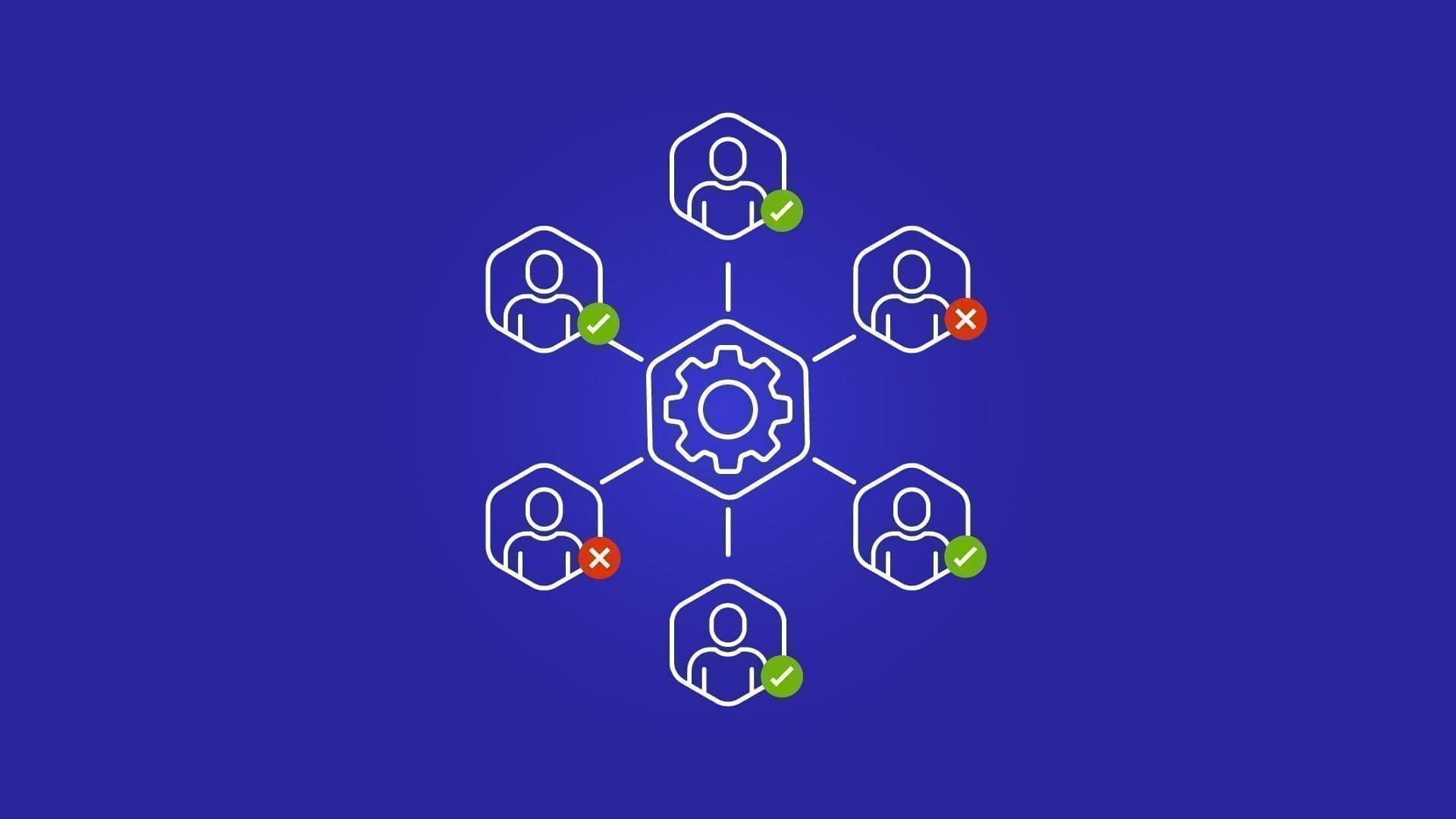Consensus Failure is a significant challenge in Blockchain Technology that can affect system integrity and reliability. Consensus mechanisms are foundational to blockchain networks, ensuring that all participants agree on the state of the ledger and the validity of transactions. However, when these mechanisms fail, the consequences can be far-reaching, affecting everything from transaction accuracy to network trust. For businesses and developers involved in Blockchain Development Services, understanding and addressing Consensus Failure is crucial for maintaining a functional and secure blockchain environment.
What Is Consensus Failure in Blockchain Technology?
Consensus Failure in blockchain technology refers to situations where participants in a blockchain network cannot agree on the state of the ledger. This disagreement can lead to discrepancies in transaction records and undermine the integrity of the blockchain. In Blockchain Development Services, consensus mechanisms are critical for ensuring that all nodes in the network agree on the validity of transactions and the state of the blockchain.
Without effective consensus, blockchain systems may experience inconsistent data, compromised security, and operational disruptions. In the realm of Blockchain Consulting Solutions, understanding and addressing these failures is crucial to maintaining the reliability and functionality of blockchain networks.
Consensus Failure typically arises from issues within the consensus algorithm, network partitions, or malicious attacks. These problems can prevent nodes from reaching an agreement, resulting in forks or splits in the blockchain. In Blockchain Consulting Company practices, addressing these failures involves analyzing and improving the consensus mechanisms to ensure that the blockchain remains consistent and secure. For businesses relying on Custom Blockchain Development Services, it’s essential to have a clear understanding of consensus mechanisms to develop robust systems that can handle potential failures effectively.
What Causes Consensus Failure in Blockchain Networks?
Several factors can contribute to Consensus Failure in blockchain networks. One major cause is network partitioning, where parts of the network become isolated due to connectivity issues or attacks. This isolation can prevent nodes from communicating effectively, leading to disagreements on the state of the blockchain. In Blockchain Development Company projects, network partitions can cause splits and inconsistencies in transaction records, impacting the overall reliability of the blockchain.
Another significant cause of consensus failure is malicious attacks. Attackers may attempt to disrupt the network by exploiting vulnerabilities in the consensus algorithm or by conducting Sybil attacks, where they create multiple fake identities to manipulate the consensus process. In Blockchain Consulting Services, understanding these threats and implementing countermeasures is crucial for maintaining the integrity of the blockchain.
Flaws in the consensus algorithm itself can also lead to failures. Algorithms that are not robust or well-designed may fail to achieve consensus under certain conditions, resulting in inconsistent or invalid blockchain states. In Custom Blockchain Development Services, it is essential to use proven and well-tested consensus mechanisms to minimize the risk of failure.
What Are the Implications of Consensus Failure for Blockchain Development?
The implications of Consensus Failure for blockchain development are significant and multifaceted. First and foremost, consensus failures can lead to inconsistencies in transaction records. When different nodes disagree on the state of the blockchain, it can result in duplicate transactions, lost data, or incorrect balances. This can undermine the trust in the blockchain system and impact its usability.
In Blockchain Development Services , addressing these inconsistencies is crucial to maintaining the integrity of the blockchain. If consensus failures are not properly managed, they can lead to reduced confidence in the blockchain’s ability to accurately and securely record transactions. This loss of trust can impact the adoption and effectiveness of the blockchain system.
Another implication is the potential for financial losses. Inconsistent transaction records can lead to incorrect or lost transactions, resulting in financial repercussions for users and businesses. For Blockchain Consulting Solutions, mitigating these risks involves implementing robust consensus mechanisms and ensuring that the blockchain system is resilient to failures.
Additionally, consensus failures can lead to increased operational costs. Resolving disputes and inconsistencies in the blockchain requires additional resources and effort, which can drive up costs for businesses. In Blockchain Consulting Company projects, it’s essential to consider these potential costs and design systems that minimize the risk of consensus failures.
How Can Developers Prevent or Mitigate Consensus Failure in Blockchain Systems?
Preventing or mitigating Consensus Failure in blockchain systems requires a multifaceted approach. One of the key strategies is to implement robust consensus algorithms. Algorithms such as Proof of Work (PoW), Proof of Stake (PoS), and Byzantine Fault Tolerance (BFT) are designed to ensure that all nodes in the network can agree on the state of the blockchain, even in the presence of faults or adversarial behavior. In Blockchain Development Services, choosing the right consensus algorithm is critical for maintaining the stability and reliability of the blockchain system.
Increasing network redundancy is another important strategy. By ensuring that multiple nodes are available to validate and record transactions, developers can reduce the risk of network partitions and improve the resilience of the blockchain system. In Custom Blockchain Development Services, implementing redundancy measures helps to ensure that the blockchain remains functional and reliable even if some nodes become isolated or fail.
Effective synchronization among nodes is also crucial for preventing consensus failures.
Ensuring that all nodes have the same view of the blockchain and that they are consistently updated helps to maintain consensus and prevent discrepancies. In Blockchain Consulting Solutions, focusing on synchronization and communication protocols can help to reduce the risk of failures and improve the overall performance of the blockchain system.
Finally, regular testing and monitoring of the blockchain system can help to identify and address potential issues before they lead to consensus failures. In Blockchain Development Company projects, conducting thorough testing and implementing monitoring tools are essential for maintaining the health and reliability of the blockchain network.
What Are Some Real-World Examples of Consensus Failure in Blockchain Networks?
Real-world examples of Consensus Failure provide valuable insights into the challenges and solutions associated with blockchain development. One notable example is the Bitcoin Cash hard fork, which occurred in 2017. The fork was the result of disagreements among developers and miners about the future direction of the Bitcoin network. This consensus failure led to the creation of a new blockchain, Bitcoin Cash, which split from the original Bitcoin blockchain. The incident highlights the impact of consensus failures on blockchain networks and the need for effective governance and communication.
Another example is the Ethereum Classic split, which resulted from a contentious hard fork following the DAO hack in 2016. The Ethereum community faced a disagreement over how to handle the aftermath of the hack, leading to a split between Ethereum and Ethereum Classic. This case underscores the importance of addressing consensus failures and implementing effective resolution strategies in Blockchain Consulting Services .
The Parity wallet hack is another instance where Consensus Failure played a role. In 2017, a vulnerability in the Parity wallet led to the freezing of approximately $150 million worth of Ether. The incident demonstrated the impact of security vulnerabilities on consensus and highlighted the need for robust development practices and security measures in Blockchain Development Services.
What Strategies Can Be Used to Resolve Consensus Failure?
Resolving Consensus Failure requires a strategic approach to address the underlying issues and restore network integrity. One effective strategy is to update or modify the consensus protocol. By implementing changes to the protocol, developers can address the root causes of consensus failures and improve the resilience of the blockchain system. In Blockchain Consulting Company practices, updating the protocol is often necessary to adapt to new challenges and maintain the reliability of the network.
Increasing the network’s fault tolerance is another crucial strategy. This can be achieved by adding more nodes, improving communication protocols, and implementing redundancy measures. By enhancing the network’s ability to handle faults and failures, developers can reduce the likelihood of consensus issues and ensure that the blockchain remains functional. In Custom Blockchain Development Services, focusing on fault tolerance helps to build more resilient and reliable blockchain systems.
Effective recovery mechanisms are also essential for resolving consensus failures. These mechanisms enable the network to recover from failures and restore consistency. For Blockchain Development Services, implementing recovery processes such as rollback and reorganization can help to address inconsistencies and ensure that the blockchain remains accurate and reliable.
Consensus Failure presents significant challenges in Blockchain Development, affecting transaction accuracy, system reliability, and overall trust. By understanding the causes, implications, and resolution strategies for consensus failures, businesses and developers can better prepare for and address these issues. Engaging with experts in Blockchain Consulting Solutions and Custom Blockchain Development Services is essential for developing robust blockchain systems that can withstand and recover from consensus failures.
Why Choose Nadcab Labs for Addressing Consensus Failure in Blockchain Development?
Choosing Nadcab Labs for addressing Consensus Failure offers several key advantages. As a leader in Blockchain Consulting Services, Nadcab Labs provides specialized expertise in developing and implementing effective solutions to mitigate and resolve consensus issues. Their extensive experience in Blockchain Development Company projects ensures that they can tackle complex challenges and deliver robust solutions.
Nadcab Labs’ focus on Blockchain Consulting Solutions and Custom Blockchain Development Services allows them to tailor their approach to the specific needs of your business. Their commitment to using cutting-edge technologies and best practices ensures that your blockchain projects are resilient, reliable, and capable of handling potential consensus failures effectively.
By partnering with Nadcab Labs, you benefit from their comprehensive understanding of blockchain technology and their proven track record in delivering successful solutions. Whether you need to address existing consensus issues or develop new systems with robust consensus mechanisms, Nadcab Labs is well-equipped to help you achieve your goals and maintain the integrity of your blockchain network.







